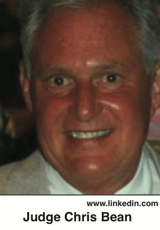Rascals case in brief
In the beginning, in 1989, more than 90 children at the Little Rascals Day Care Center in Edenton, North Carolina, accused a total of 20 adults with 429 instances of sexual abuse over a three-year period. It may have all begun with one parent’s complaint about punishment given her child.
Among the alleged perpetrators: the sheriff and mayor. But prosecutors would charge only Robin Byrum, Darlene Harris, Elizabeth “Betsy” Kelly, Robert “Bob” Kelly, Willard Scott Privott, Shelley Stone and Dawn Wilson – the Edenton 7.
Along with sodomy and beatings, allegations included a baby killed with a handgun, a child being hung upside down from a tree and being set on fire and countless other fantastic incidents involving spaceships, hot air balloons, pirate ships and trained sharks.
By the time prosecutors dropped the last charges in 1997, Little Rascals had become North Carolina’s longest and most costly criminal trial. Prosecutors kept defendants jailed in hopes at least one would turn against their supposed co-conspirators. Remarkably, none did. Another shameful record: Five defendants had to wait longer to face their accusers in court than anyone else in North Carolina history.
Between 1991 and 1997, Ofra Bikel produced three extraordinary episodes on the Little Rascals case for the PBS series “Frontline.” Although “Innocence Lost” did not deter prosecutors, it exposed their tactics and fostered nationwide skepticism and dismay.
With each passing year, the absurdity of the Little Rascals charges has become more obvious. But no admission of error has ever come from prosecutors, police, interviewers or parents. This site is devoted to the issues raised by this case.
On Facebook
Click for earlier Facebook posts archived on this site
Click to go to
Today’s random selection from the Little Rascals Day Care archives….
Click for earlier Facebook posts archived on this site
Click to go to
Today’s random selection from the Little Rascals Day Care archives….
Moral panics, strange to begin with, also make strange bedfellows

Cohen
June 14, 2018
“America has a long history of episodic moral panics in which self-styled experts, sensationalistic journalists and public officials used emotionally charged language and a barrage of (often distorted) statistics to portray a particular social problem as widespread and urgent….
“The 1980s brought [a] moral panic precipitated by unease about double-income families and the supervision of children by strangers at day-care centers….
“All these scares produced unexpected political alliances. Conservatives concerned with moral purity, law-and-order and Christian values joined forces with feminists worried about victims of sexual trauma and liberals in favor of strong government regulation. When forces from the right and left converge in a moral panic, their causes possess greater appeal to the public. We see this today as women’s rights advocates join the sex-trafficking fight along with the religious right. The result is a runaway train with no real political force left in opposition….”
– From “President Trump signed a new law that aims to fight online sex trafficking. Here’s why that’s bad.” by Sascha Cohen in the Washington Post (April 12)
![]()
Move along, ‘Frontline,’ nothing to see here
June 12, 2013
“We received only one call, from a gentleman in Massachusetts, and he said he felt sorry for the whole community and wished us well. It was business as usual, except for all the damn reporters.
“I don’t see why this thing has to be tried again. It’s been through the judicial system, and I just don’t know what ‘Frontline’s’ agenda is.
“The town is not divided or in turmoil or any of that stuff they’re saying about it.”
– Edenton Town Manager Anne Marie Kelly (no relation to Bob Kelly), reacting to “Innocence Lost: The Verdict” (as quoted in “Sex-case documentary stirs up Edenton again,” News & Observer, July 22, 1993)
Santa, I know this is an unusual request, but….
 Dec. 14, 2012
Dec. 14, 2012
“Lamb, Nancy and Bill Hart. ‘Pointers on multi-victim, multi-perpetrator cases.’ American Prosecutors Research Institute 1992. Attorneys who prosecuted Little Rascals case offer advice regarding mass molestation cases.”
– Description of an 18-page how-to booklet that surely should be filed under “fantasy” or “horror” – if copies existed at all.
Unfortunately, all seem to have vanished from libraries as well as from booksellers. When I requested a copy from the National District Attorneys Association, parent of the research institute, I was told, “We only serve prosecutors, not (even) other lawyers. But… we haven’t been able to find it. So at this point, we could not even provide it to a prosecutor.”
Whatever happened to Kelly’s ex-lawyer? This….
 Nov. 8, 2013
Nov. 8, 2013
While we await Gov. McCrory’s decision on whether to promote Nancy Lamb to district attorney, another key figure in the Little Rascals prosecution is stepping aside.
From the Elizabeth City Daily Advance:
EDENTON – Judge Chris Bean, chief district court judge in the 1st Judicial District, does not plan to seek re-election to another term.
Bean, who has been a judge for more than two decades, said recently he plans to step down when his current term ends in December 2014.
“I have been doing this for 20-some years,” Bean said. “It has been a fascinating career.”
Unmentioned by Judge Bean (or by the Advance, which seems to have purged Little Rascals from its memory) is his deeply prejudicial testimony against former client Bob Kelly.
Bean and Lamb have continued to share an immunity to just consequences. (Compare the enormity of the Little Rascals prosecution with the penny-ante misconduct that typically brings about disbarment in North Carolina.)
Only their innocent victims – the Edenton Seven, the child witnesses – paid a price, and it was a high one indeed.











0 CommentsComment on Facebook